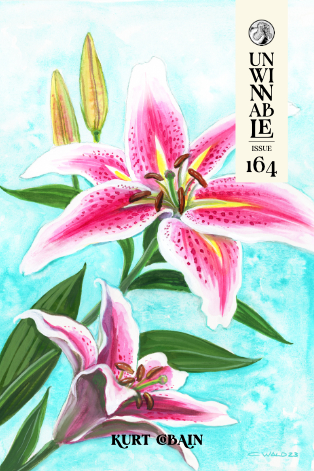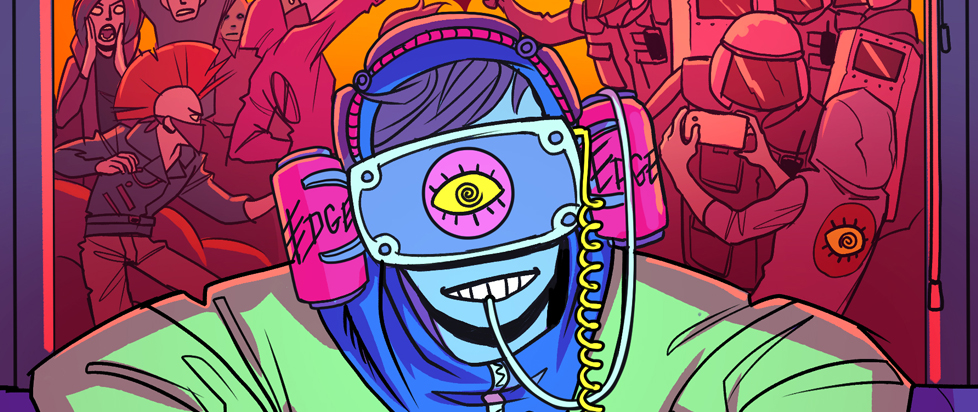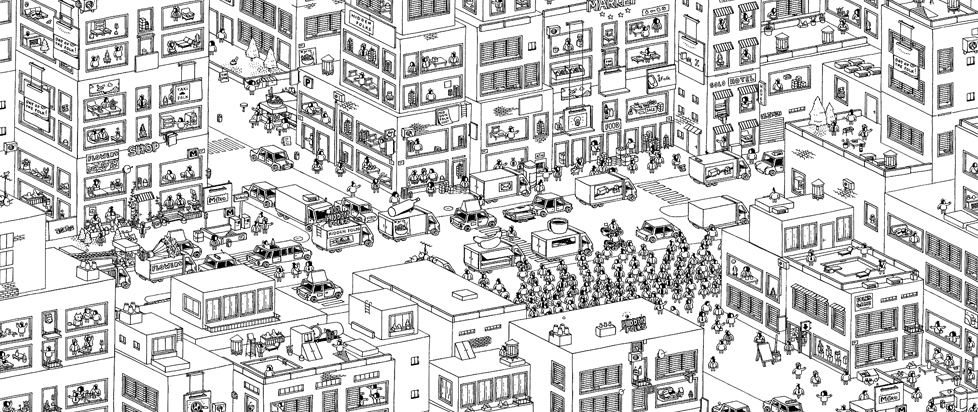
Marathon May

This column is a reprint from Unwinnable Monthly #164. If you like what you see, grab the magazine for less than ten dollars, or subscribe and get all future magazines for half price.
———
Interfacing in the millennium.
———
This month I had an idea, albeit a bad one. I work at a bookstore and am consequently constantly juggling an employee stash shelf full of a truly embarrassing number of things. We have a lot of cool stuff come through our store, and I’m interested in a pretty healthy percentage of them! It’s unwieldy and overwhelming after a while of hoarding, though, and also I can technically get written up for it – so this month, I said, in the spirit of crash diets and other unhealthy life plans claiming to turn your life around in a short period of time, I was going to get through it. I was going to read and watch as much as I could from the stack that I had – a not-insignificant 42 books and movies – and once the month was over, I was gonna toss anything I didn’t make it to. Clean house, start afresh. This was just a little ambitious, considering I have a full-time job and some semblance of a life, but the constraints were appealing when faced with the enormity of the situation. My eyes have always been bigger than my stomach, and it ended up as less of a fun game and more the taut, satisfying pressure of racing for a deadline you’re sure you’ll just meet. This is not the best way to interact with art, but it’s also hard to see what the alternative is.

I spent a lot of time thinking I couldn’t talk about art because I hadn’t been exposed to enough of it. As a kid, I played about a game a year, just at length; my early forays into games journalism were nerve-racking because I felt I was always behind, trying to discuss something I had no context for, no experience with. It was the same in college, surrounded by film buffs, and only recently have I reached the previously-coveted place where I’m the one with the larger background of knowledge. The problem with art, and the beauty of it, is that it goes on forever – you will never run out of books to read, games to play, movies to watch. Social media exacerbates the problem, when everything new seems urgent and the sense of missing out progresses with the calendar, as inevitably life steps in front of your to-read list or that indie film that only made it to theaters for a week or the shiny new game that would take up 90 hours of your life you can’t afford to give up.
I feel very lucky for the place I’m in. I don’t have to rely on the algorithm to expose things to me, but I don’t have to do the digging on my own, and as such I feel that I end up with a richer, more varied, more diverse array of things on my plate than the average person in my situation tends to these days. But it doesn’t change the fact that there’s too much of it, that my curiosity ends up having the same tiring, bloating effect as gluttony. I end up on the other side exhausted, and also a bit guilty, that in my rush the experience wasn’t what it should have been, what the hardworking creatives behind these works would have wanted it to be. There is not enough time to savor everything, to sit with it, without catching a glimpse in the background of the lost opportunities, the sacrifices made for those longer moments of focus.

This month, I read Thomas Ligotti’s The Conspiracy Against the Human Race, a well-written and interesting but, in my opinion, fundamentally unconvincing treatise on nihilism. I also read Clarice Lispector’s The Passion of G.H. and Antonio di Benedetto’s The Silentiary, and I found there to be a fascinating resonance between the three, a dialogue I wasn’t aware of when I picked up the books and that seemed almost uncannily lucky when considering the choices of other work I had been faced with through the month. Those are the moments I itch for every time I tune into something new, that little glimpse into the webbing that connects the world, the common ground we all share without knowing it.
And yet I found myself unable to appreciate it. There was just too much else to do, to read, to see, to think about. I knew I’d done it to myself – it was a risk I was willing to take – and yet I still felt betrayed by the ever-present truth that quantity does in fact affect quality. There’s no way to cheat it! It’s one of nature’s most annoying laws.
In some sense, my experiment worked. I read and watched a lot of things I had been interested in, and I pulled off the band-aid of the rest of my hoard, trusting that if it’s something that really needs to enter my life it will find its way back to me. I’ve done a lot of good checklisting. I’ve added some things to some challenges in some apps. But I haven’t yet figured out a real solution for this dilemma, something to curb the emotional claim I’ve accidentally staked in a problem that isn’t real, this thing that bothers me that is also an undeniable good! There’s just too much art, too many cool things, and not enough time to experience all of them.
Oh well. Of all the problems in the world, it’s not a bad one to have.
———
Maddi Chilton is an internet artifact from St. Louis, Missouri. Follow her on Twitter @allpalaces.




